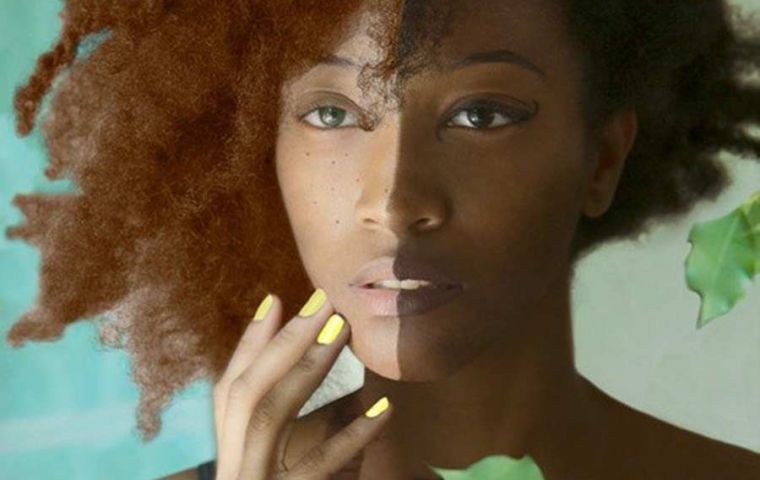MercoPress. South Atlantic News Agency
Race plays a key role in personal development, Brazil's IBGE finds
 In the previous (2019) edition of the IBGE report, skin color factors were not analyzed
In the previous (2019) edition of the IBGE report, skin color factors were not analyzed A study released Friday by Brazil's Institute of Geography and Statistics (IBGE) showed that the average income of white workers was 75.7% higher than that of Afrodescendant people. White individuals have also been less affected by unemployment, the report pointed out.
The research found skin color to be a relevant factor in differentiating the average monthly income of workers in the country in 2021. According to the survey, whites earn an average of R$ 3,099 (currently US$ 578,79). This value is 75.7% higher than the one registered among black people, which was of R$ 1,764 (US$ 329,45). It is also 70.8% higher than the average income of R$1,814 (US$ 338,79) for pardo workers.
As per IBGE vocabulary, “pardo” is one of the five skin color groups that make up the Brazilian population, along with white, black, yellow, and indigenous. Pardo stands for a varied ethnic ancestry, a mixture of skin color that includes mulatto (black and white descendants), caboclo (whites and Amerindian descendants), cafuzo (black and Indian descendants), or mixed.
Even among people with a full college education, a significant gap persists. The average hourly income of whites was around 50% higher than that of blacks and around 40% higher than that of pardos. Although they account for 53.8% of the country's workers, black and mixed-race people occupied only 29.5% of managerial positions in 2021.
Whites have also been less affected by unemployment: 11.3 % in 2021, against 16.5% for blacks and 16.2% for pardos. And only white workers were below the 40.1% informality rate nationwide.
According to IBGE, “informality in the labor market is often associated with precarious work and the absence of social protection. It involves workers who may face difficulties in accessing basic rights, such as retirement and the guarantee of remuneration equal to or greater than the minimum wage.”
The proportion of poor people in the country is also quite distinct according to color. Among whites, 18.6% were below the poverty line, that is, they live on less than US$ 5.50 per day according to one of the World Bank's classifications. The percentage rises to 34.5% among blacks (34.5%) and mulattoes (38.4%).
Under the title Social Inequalities by Color or Race in Brazil, the study cross-references data from 12 other IBGE surveys. It is the report's second edition after the first one appeared in 2019 when indicators on the labor market and income distribution were not included.
According to IBGE, “racial inequalities are important vectors for the analysis of social inequalities in Brazil, by revealing in time and space the greater socioeconomic vulnerability of the black, brown, and indigenous populations.”
The study also brings updated information about wealth, education, violence, political representation, and the political environment of the municipalities. According to IBGE, there is unequal access for different population groups to basic goods and services such as health, education, housing, work, and income.
The homes of white people were found to feature a refrigerator, TV, washing machine, oven, microwave oven, car, computer, air conditioning, tablet, and freezer. However, motorcycles were more frequent in the households of people of mixed race.
Among landowners with over 10,000 hectares, 79.1% declared themselves white, 17.4% were pardos, and only 1.6% were black.
Pardo people accounted for the largest number of murder victims in 2020: 34.1 deaths per 100,000. Among blacks, this rate was 21.9, and 11.5 for white people.
And among mayoral candidates in 2020 who ran campaigns with funding above R$ 1 million (US$ 186765,77), 67.5% were white. (Source: Agencia Brasil)




Top Comments
Disclaimer & comment rulesCommenting for this story is now closed.
If you have a Facebook account, become a fan and comment on our Facebook Page!